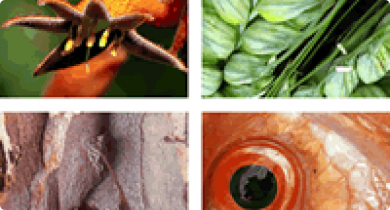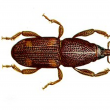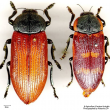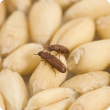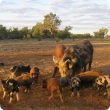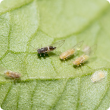Biosecurity & quarantine
The Department of Agriculture and Food, Western Australia (DAFWA) works with primary industries to safeguard our agricultural resources from biological threats and to maintain our export opportunities.
The State’s reputation is underpinned by a comprehensive biosecurity and quarantine system, developed and operated by DAFWA.
DAFWA is involved with:
- creation of surveillance and diagnostic programs
- animal and plant risk assessments
- importing and exporting requirements
- creating mechanisms to respond to incursions
- livestock movement and identification
- development and maintenance of biosecurity and quarantine legislation.
To find out more about what we do to protect agricultural production and export opportunities within the State please search our website.
Filter by search
Filter by topic
- (-) Remove Pests, weeds & diseases filter Pests, weeds & diseases
- (-) Remove Pests filter Pests
- Biosecurity (65) Apply Biosecurity filter
- Pest insects (42) Apply Pest insects filter
- Plant biosecurity (32) Apply Plant biosecurity filter
- Crops (25) Apply Crops filter
- Invasive species (21) Apply Invasive species filter
- Pest animals (20) Apply Pest animals filter
- Horticulture (19) Apply Horticulture filter
- Diseases (11) Apply Diseases filter
- Quarantine (10) Apply Quarantine filter
- Pest mammals (9) Apply Pest mammals filter
- Fruit (9) Apply Fruit filter
- Control methods (8) Apply Control methods filter
- Livestock & animals (7) Apply Livestock & animals filter
- Vegetables (6) Apply Vegetables filter
- Emergency response (6) Apply Emergency response filter
- Weeds (5) Apply Weeds filter
- Livestock management (5) Apply Livestock management filter
- Agricultural emergency response (5) Apply Agricultural emergency response filter
- Livestock biosecurity (5) Apply Livestock biosecurity filter
- Chemicals (5) Apply Chemicals filter
- State Barrier Fence (4) Apply State Barrier Fence filter
- Nursery & cutflowers (4) Apply Nursery & cutflowers filter
- Birds (4) Apply Birds filter
- Baits & poisons (4) Apply Baits & poisons filter
- Intrastate movement (3) Apply Intrastate movement filter
- Potatoes (3) Apply Potatoes filter
- Grapes & wine (3) Apply Grapes & wine filter
- Grains (3) Apply Grains filter
- 1080 (3) Apply 1080 filter
- European house borer (3) Apply European house borer filter
- Importing to Western Australia (2) Apply Importing to Western Australia filter
- Mangoes (2) Apply Mangoes filter
- Livestock species (2) Apply Livestock species filter
- Fungi (2) Apply Fungi filter
- Exporting from Western Australia (2) Apply Exporting from Western Australia filter
- Biosecurity governance (2) Apply Biosecurity governance filter
- Biosecurity and Agriculture Management Act (2) Apply Biosecurity and Agriculture Management Act filter
- Declared plants (2) Apply Declared plants filter
- Food & beverages (1) Apply Food & beverages filter
- Food safety (1) Apply Food safety filter
- Importing animals (1) Apply Importing animals filter
- Exporting plant and plant products (1) Apply Exporting plant and plant products filter
- Beef cattle (1) Apply Beef cattle filter
- Agribusiness Food & Trade (1) Apply Agribusiness Food & Trade filter
- Amphibians and reptiles (1) Apply Amphibians and reptiles filter
- Bees (1) Apply Bees filter
- Crop diseases (1) Apply Crop diseases filter

